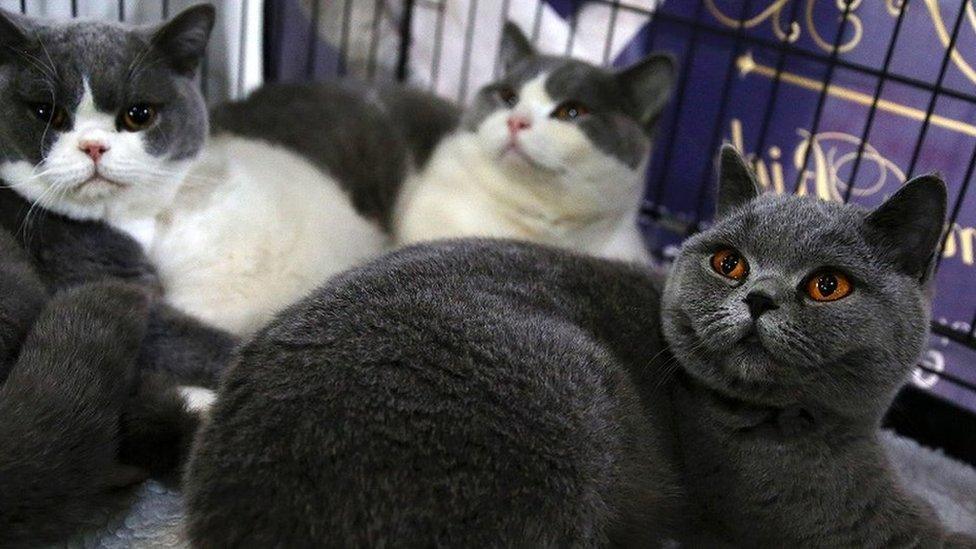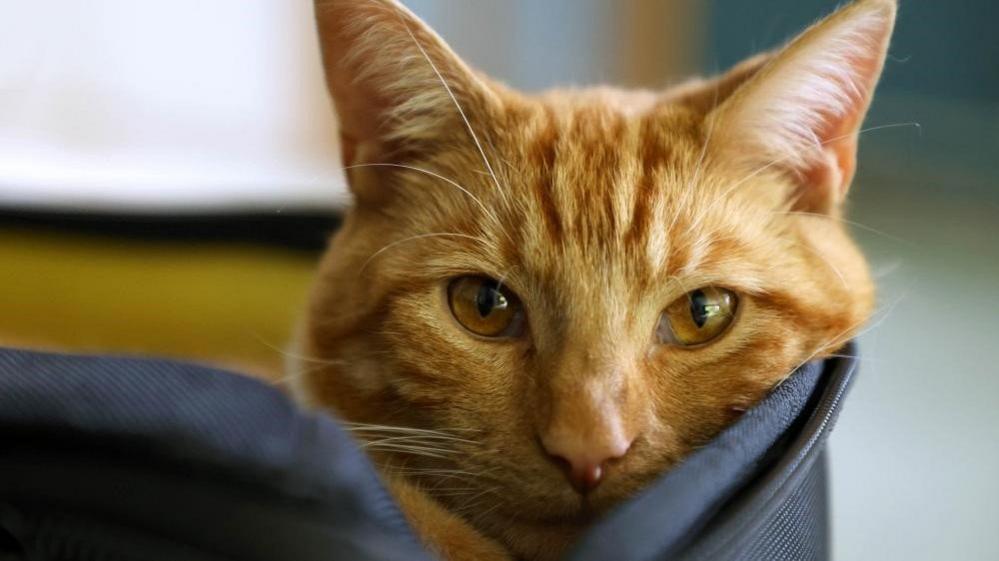MP Sir Christopher Chope tries to block cat abduction offence
- Published

A Conservative MP is trying to overturn a government-backed plan to make abducting cats a criminal offence in England and Northern Ireland.
Sir Christopher Chope has proposed changes to the Pet Abduction Bill initially restricting it to dogs.
He says it should only cover cats when another new law requiring them to be microchipped has come into effect.
His amendments would be unlikely to pass a vote because the government is supporting the legislation.
But they will need time to be debated in the House of Commons, which could make it harder for an offence relating to either animal to be passed into law before the general election.
Currently, pets are considered in law to be property and stealing a pet is covered by the 1968 Theft Act, external. The law is similar in Scotland.
The Pet Abduction Bill would make stealing cats and dogs a specific criminal offence in England and Northern Ireland, with anyone convicted facing a fine or a maximum of five years in prison.
Sir Christopher said he did not believe cats should be included in the legislation until after regulations requiring them to be microchipped have come into force in England in June.
A microchip is a tiny electronic device with a unique number, linked to their owner's details, which is implanted under an animal's skin.

Sir Christopher has a record of objecting to Private Members Bills
It has been compulsory to microchip dogs in England, Scotland and Wales since 2016. It is also a condition of holding a dog licence in Northern Ireland - the only part of the UK where dog owners must still register their pets for an annual fee.
There is no requirement for cats to be microchipped in Northern Ireland, Scotland or Wales.
'Callous crime'
Sir Christopher said he wanted to further incentivise microchipping by linking it to the ability to pursue somebody under the new offence and said another clause in the bill could allow it to be extended to cats at a later date.
"Cats could be included at the stage that we know that the microchipping is working," he told the BBC.
He said there was a difference in nature between cats and dogs and he believed his proposals better reflected the original recommendations of a body set up to explore the idea of a pet theft offence.
"The legislation came from a working party that was set up by the government during the period of lockdown and the conclusions of that working party were that the crime of pet abduction should be limited to dogs in the first instance."
The Pet Abduction Bill was introduced by Conservative MP Anna Firth as a Private Member's Bill after the government dropped similar measures last year.
Mrs Firth's bill widened the legislation to include cats after campaigning by cat charities.
It has the backing of the government and has been welcomed by a number of animal welfare groups. Environment Minister Rebecca Pow told the Commons in January that "the unlawful taking of pets is a callous crime and it's right that perpetrators are brought to justice."
She said she hoped the legislation would make "swift progress".
Parliamentary procedure
Now that amendments have been tabled, there must be a debate, which has been scheduled for 19 April.
If passed, it will then go to the House of Lords for consideration.
Supporters of the bill had hoped that it would be able to go through the Commons, without amendments, as early as last week.
Sir Christopher does not believe his amendments will slow the Bill's progress.
The Christchurch MP has a track record of intervening in Private Members' Bills.
In 2018, he faced criticism for using a parliamentary procedure, under which any MP can stall a bill by shouting "object", to block a ban on "upskirting" - secretly taking a photo up a woman's skirt.
It was later brought in after the government adopted the measures. Sir Christopher said he supported the ban but had been objecting to parliamentary procedure.
He has also used the same mechanism to block other pieces of legislation including bills to offer protection orders for children at risk of female genital mutilation, to pardon the World War Two codebreaker Alan Turing and to ban wild animals in circuses.
Related topics
- Published19 January 2024
